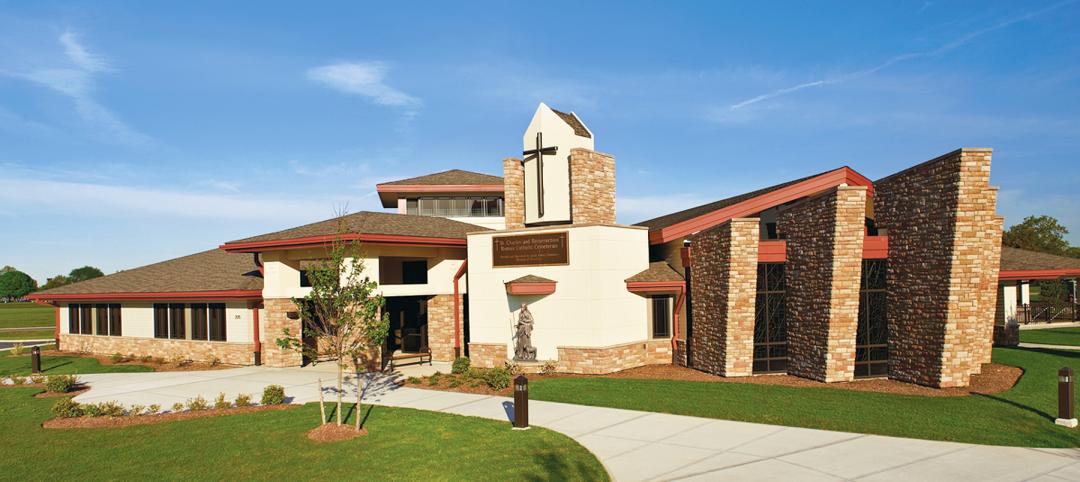Portland State University’s School of Architecture is proud to announce the launch of its new Center for Public Interest Design, a research center that aims to investigate and utilize the power of design to make social, economic and environmental change in disadvantaged communities worldwide. The Center is the first of its kind in the nation.
Positioned at the forefront of a burgeoning international movement in public interest design among architects, designers, and the general public, the Center is headed by Professor Sergio Palleroni, a recipient of the American Institute of Architects’ prestigious Latrobe Prize for Public Interest Practice in Architecture in 2011.
The new Center’s startup is being funded by a gift from an anonymous donor, who has pledged a total of $1.5 million over a five-year period, starting with an initial $500,000 in December 2012.
The mission of the Center meets a critical worldwide need for affordable, sustainable design. Bryan Bell, the founder of Design Corps, has often said that only 2 percent of building in the US involves an architect. That number is even lower in developing or undeveloped countries, where access to clean water, safe and well-designed shelter and other basic necessities may go unmet. The Center aims to change this fact, with the understanding that architecture can help make the world a better place and that architects can be agents of change.
"Our research shows that one major obstacle to the growth of public interest design is the lack of education being provided in this emerging field. Universities need to step up and train designers to effectively provide this public service,” said Bryan Bell. “Portland State University has taken a groundbreaking step by opening the first center that will focus on this important field.”
Palleroni and his colleagues are already promoting the emerging field of public interest design by supporting research in public engagement, fieldwork, service opportunities and professional education and training.
The first five projects in the Center are rethinking the way designers collaborate with communities to change living conditions, regardless of economic or social status. The projects include the design and construction of an orphanage and environmental-technical school in Titanyen, Haiti, a collaboration with architecture faculty and students at Ecole Speciale d’Architecture, Paris, France; and the SAGE classroom, which has gone on the market nationally in the last week and promises to make healthy and green modular classrooms affordable to all.
Prior to the anonymous gift, the 2011 Latrobe Prize given to Palleroni, Bryan Bell, David Perkes and Roberta Feldman helped to seed the team’s efforts in public interest design. That $100,000 award allowed this team to undertake the first comprehensive study of the public interest design field. The 150 international public interest design practices identified through this study helped inform the creation of this Center and will help create an archive of best practices that will be available to all designers and the public.
Palleroni, with three decades of experience addressing issues of shelter, education, and resources for the most needy worldwide, is joined by Assistant Professor B.D. Wortham-Galvin, who brings an impressive track record of working with impoverished communities and Portland neighborhoods. Assistant Professor Margarette Leite contributes expertise in sustainability, building materials and school conditions in the US and abroad. Most recently she has led an effort to create the first affordable green and healthy modular classroom in the US. This effort will bring together the work of several research units and faculty and student initiatives at PSU with collaborators at other institutions throughout the US and around the world.
About Portland State University (PSU)?
Located in Portland, Oregon, PSU has about 30,000 undergraduate and graduate students. PSU’s motto is “Let Knowledge Serve the City,” and we provide every student with opportunities to work with businesses, schools and organizations on real-world projects. Our downtown campus exhibits PSU’s commitment to sustainability with green buildings, while sustainability is incorporated into much of the curriculum.
About the School of Architecture at Portland State University
The School of Architecture’s four-year bachelor’s degree program and its two-year NAAB- accredited professional master’s degree program emphasize focused study in architectural design, the humanities, tectonics and the profession, in a rich, design-based curriculum, as they prepare students for a career as a licensed architect. The Master of Architecture program concludes with the completion of a major design thesis study of individually inspired questions concerning architecture, culture and technology.
Related Stories
| Oct 4, 2011
GREENBUILD 2011: Wall protection line now eligible to contribute to LEED Pilot Credit 43
The Cradle-to-Cradle Certified Wall Protection Line offers an additional option for customers to achieve LEED project certification.
| Oct 3, 2011
Magellan Development Group opens Village Market in Chicago’s Lakeshore East neighborhood
Magellan Development Group and Hanwha Engineering & Construction are joint-venture development partners on the project. The Village Market was designed for Silver LEED certification by Loewenberg Architects and built by McHugh Construction.
| Oct 3, 2011
Balance bunker and Phase III projects breaks ground at Mitsubishi Plant in Georgia
The facility, a modification of similar facilities used by Mitsubishi Heavy Industries, Inc. (MHI) in Japan, was designed by a joint design team of engineers and architects from The Austin Company of Cleveland, Ohio, MPSA and MHI.
| Oct 3, 2011
Cauceglia to lead Allsteel’s global accounts
Cauceglia is responsible for developing new global business strategies and expanding existing business within the Fortune 500 sector.
| Sep 30, 2011
BBS Architects & Engineers completes welcoming center at St. Charles Resurrection Cemetery
The new structure serves as the cemetery's focal architectural point and center of operations.
| Sep 30, 2011
Kilbourn joins Perkins Eastman
Kilbourn joins with more than 28 years of design and planning experience for communities, buildings, and interiors in hospitality, retail/mixed-use, corporate office, and healthcare.
| Sep 30, 2011
Design your own floor program
Program allows users to choose from a variety of flooring and line accent colors to create unique floor designs to complement any athletic facility.
| Sep 30, 2011
AAMA offers electronic technical documents with launch of virtual library
This new program offers a system for members to purchase annual licenses in order to offer electronic versions of AAMA publications in an effort to make AAMA’s technical information resources more readily available to their employees.
| Sep 29, 2011
Submit your Great Solutions
Profiles of Great Solutions will appear in December 2011 issue of Building Design+Construction.
| Sep 29, 2011
Busch Engineering, Science and Technology Residence Hall opens to Rutgers students
With a total development cost of $57 million, B.E.S.T. is the first on-campus residence hall constructed by Rutgers since 1994.
















